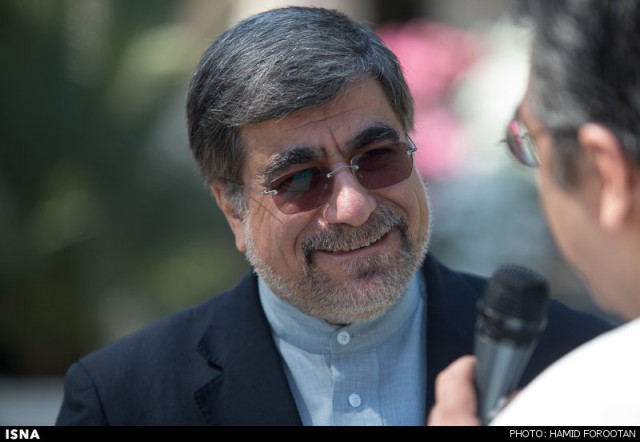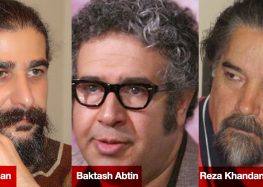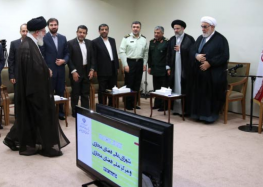Minister Says his Government not Responsible for Press Bans

Minister of Culture, Ali Jannati directed the blame for closure of 9 Dey away from Rouhani’s government, telling ISNA “the Press Oversight Committee has seven members representing the Iranian Judiciary, Parliament, The Supreme Cultural Revolution Council, the Qom Seminary, etc., and Ministries of Culture and Science are only two of the organization’s members. The decisions are based on the majority vote and this decision was based on the majority vote of the Press Oversight Committee.”
In an interview with Iran Students News Agency (ISNA), Ali Jannati, Iran’s Minister of Culture and Islamic Guidance said the recent ban on the hardliner publication, 9 Dey, was unrelated to the Rouhani administration. After receiving six warnings from the Press Oversight Committee in one year, 9 Dey Weekly was banned on March 16, 2014. Jannati added that the government is not responsible for the publication bans or notices, or in any actions against the press.
Conservative cleric Hamid Rasaei, the hardline and highly vocal Managing Editor of 9 Dey Weekly has been a harsh critic of the Rouhani administration, and he holds the administration responsible for the ban on his publication. Ali Jannati told ISNA “the Press Oversight Committee has seven members representing the Iranian Judiciary, Parliament, The Supreme Cultural Revolution Council, the Qom Seminary, etc., and Ministries of Culture and Science are only two of the organization’s members. The decisions are based on the majority vote and this decision was based on the majority vote of the Press Oversight Committee.”
“Considering the numerous notices the 9 Dey weekly received over the past year, which were not addressed, the Press Oversight Committee decided on the ban. I have said repeatedly that under no circumstances are we in favor of banning any publications, and believe that a ban should be the last resort, because we believe that the lives of many of the individuals who work in that publication will become difficult. Therefore we try not to ban any publications to the extent possible.”
Despite raised expectation for greater press freedoms with Rouhani’s election to office last year, the situation for newspapers and journalists has not improved in Iran.
In September 2013, Neshat newspaper announced that it would resume publishing after its suspension for nearly a decade by the authorities had ended. Yet, Iranian judicial authorities ordered the reformist paper to be shut down on December 2, 2013, before it resumed publication. Iranian authorities shut down the daily Aseman newspaper after only six issues on February 20, 2014 when it published a quote by an interviewee in which Iran’s Qisas Law was called “inhumane.” Also in February, Iran’s Supreme National Security Council filed a suit against conservative journalist Hossein Ghadyani and his employer, Vatan-e Emrooz newspaper, for publishing four articles that criticized Iran’s nuclear negotiations and alleged corruption in the government’s dealings with an oil company. Five years after the disputed 2009 presidential elections, 39 Iranian journalists and bloggers remain in prisons on security charges leveled against them in trials patently lacking due process.






